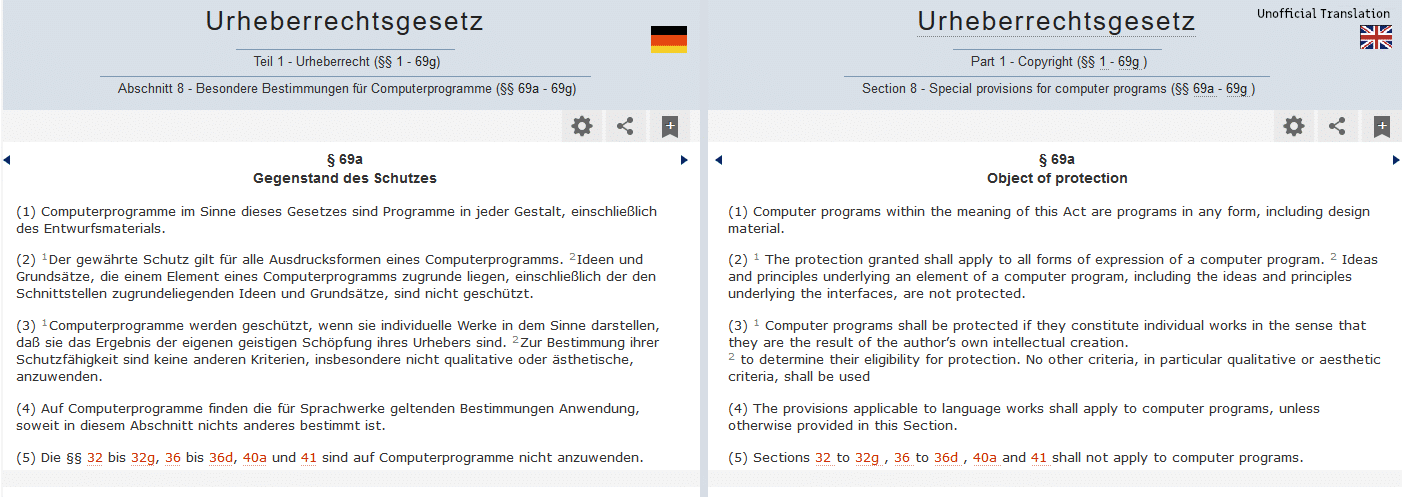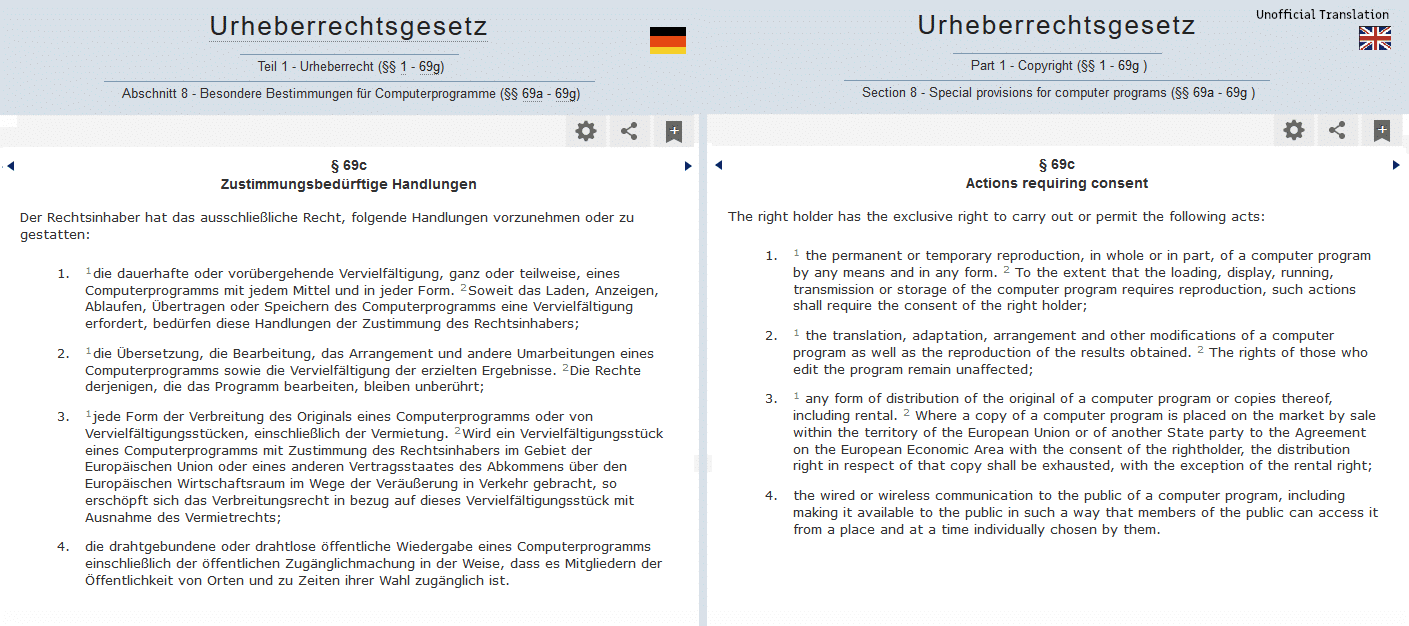 There’s little doubt that online businesses reliant on advertising revenue are negatively affected by increasing use of ad blocking solutions.
There’s little doubt that online businesses reliant on advertising revenue are negatively affected by increasing use of ad blocking solutions.
Yet it’s thanks to abusive and invasive ads, and threats to privacy due to incessant online tracking, that ad blockers became so popular.
There’s a good argument today that an effective ad blocking solution is not just a way to keep out an avalanche of mostly unwanted advertising. In many cases ad blockers are seen as an essential tool in the internet user’s security toolbox and as a result, people are reluctant to turn them off.
Axel Springer Acquires Target, Misses, Switches to New Weapon
For German publisher Axel Springer, ad blocking solutions are mechanisms that fundamentally undermine the company’s ability to generate revenue. Hoping to force change, over a decade ago the company took legal action against Eyeo GmbH, the company behind Adblock Plus, arguing that the software interfered with its business model. In April 2018, Adblock Plus and Eyeo came out on top, when Germany’s Supreme Court found no breach of competition law.
Still determined to take ad blocking out of the game, Springer changed tack. In a new lawsuit, the publisher alleged that AdBlock Plus removes ads by interfering with the “programming code of websites” which violates its exclusive rights under copyright law.
Eyeo dismissed the claim as “almost absurd” and in January 2022 the Hamburg Regional Court denied Springer’s request for an injunction, ruling that there was no unauthorized copying or reworking of copyrighted computer programs as defined under local law.
Springer appealed and in 2023 lost again, this time at the Higher Regional Court of Hamburg. Refusing to accept defeat, the publisher filed yet another appeal at the Federal Court of Justice (BGH).
Treatment of Software Under German Copyright Law
While competition law may have been a dead end, copyright law can offer novel opportunities for the determined.
Axel Springer’s argument is built on provisions in German copyright law for the protection of software. According to § 69a para. 3 UrhG, a piece of software (‘computer program’) is afforded protection under copyright law if it “represents an individual work to the extent that it is the result of the author’s own intellectual creation.”
Protection applies to “all forms of expression” in the program but does not extend to “ideas and principles” underlying its elements. This effectively means that people can’t copy or distribute a piece of software verbatim, but they are free to write their own version of the software as long as there’s no direct copying of the original.
In more general terms, computer programs are treated as literary works under the Copyright Act and as such enjoy the same protection. This means that the author of a computer program (or their employer) holds exclusive rights to reproduce, distribute and make the program publicly available, just as an author of a book would.
Springer Argues Websites Are Computer Programs
Axel Springer argues that the software used to create its online media presence (i.e its website) qualifies for protection as software under § 69a (1) and (2) of the Copyright Act.

Based on the assumption that its software does indeed qualify for protection under § 69a, Axel Springer notes that further protection is afforded under § 69c, with certain exclusive rights granted to the rightsholder.
Under § 69c, third parties must obtain permission for any of the following acts:

§ 69c (2) “the translation, adaptation, arrangement and other modifications of a computer program as well as the reproduction of the results obtained.”
Axel Springer’s argument is that when Adblock Plus blocks or manipulates its website code (‘computer program’) present in the user’s browser, that amounts to a violation of its exclusive right of modification available under § 69c (2) and its reproduction right under § 69c (1).
Federal Court of Justice Overturns Decision of Lower Court
The above matters and others focused on the technical issues are detailed in the ruling handed down by the Federal Court of Justice (BGH). The ruling (Werbeblocker IV / Ad Blocker IV) is clearly a setback for Eyeo GmbH; the Higher Regional Court of Hamburg previously ruled in favor of the Cologne-based company, a decision the BGH has just overturned.
In a nutshell, the BGH states that the Hamburg court arrived at its decision without first establishing important fundamentals. These details may support the decision of the Hamburg court or undermine it, but that can only be determined once the facts are established.
“When examining whether an infringement of a copyrighted right to a protected object (here: a computer program within the meaning of Section 69a (1) of the Copyright Act) has occurred, it is not always necessary to determine whether this protected object meets the requirements of a copyrighted work, computer program, or related right. Rather, this circumstance can be assumed, provided that there is no unlawful infringement of copyright,” the decision reads.
“It should be noted, however, that the question of an infringement of a property right may depend on a clear definition of the protected object and its features justifying protection. Denying an infringement of a copyright-protected right while simultaneously assuming that the protected object in question is eligible for copyright protection is therefore only possible in such a case if the object itself deemed to be protected by copyright and the features justifying its protection are clearly defined.”
Technical Matters
Lubberger Lehment, the law firm acting for Axel Springer, highlights a technical aspect mentioned in the BGH decision which it believes warrants much closer attention.
“In particular, the Higher Regional Court did not sufficiently consider Axel Springer’s argument that a browser is a virtual machine controlled by a website program as byte code. In its reasoning, the Federal Supreme Court quotes in unusual detail what we presented with the help of external experts,” their statement reads.
The decision notes that this is not just about “changing variable data in the memory of a computer, but rather changing code created by the bytecode of the website ‘computer program’ as a form of expression of the website programming itself.”
For those interested in the technical argument, full details are available in the decision (pdf, German). Which elements will make or break the case, if any, is still unclear.
Outcome Could Have Far-Reaching Implications
The scale of the fallout from an Axel Springer win could be significant and given the background, hard to balance in the bigger picture. Switching to copyright law purely because competition law proved insufficient, suggests that copyright may have been viewed as a means to an end. Whether wider disruption will find balance in the benefits claimed by the plaintiffs is another question.
Lubberger Lehment state that the case isn’t just about protecting the integrity of online media.
“It is about the question of whether at all and in what quality online journalism can be offered and used in the future – it is about freedom of information without paywalls. This is fundamental to democracy,” the company writes.
Whether the developer community will come to view the following in a positive light remains to be seen.
“[T]he case is of fundamental importance for the entire software industry. This is because all browser applications work with the same technical components, namely HTML5, CSS, PHP, and Java Script. This affects all cloud-based applications such as computer games, standard software, SAP, etc. The ad blocker trial will determine whether this future technology is protected by copyright or can be manipulated at will by third parties.”
From: TF, for the latest news on copyright battles, piracy and more.
Powered by WPeMatico
